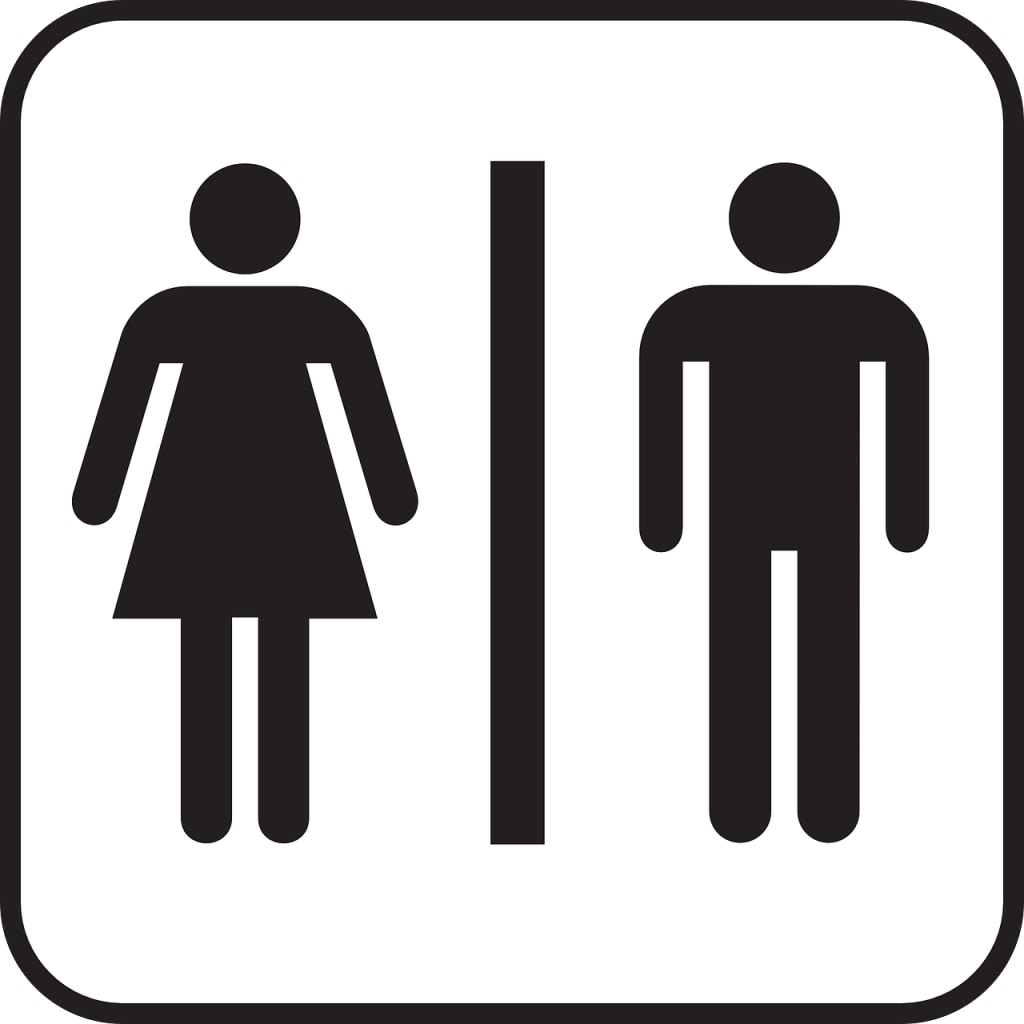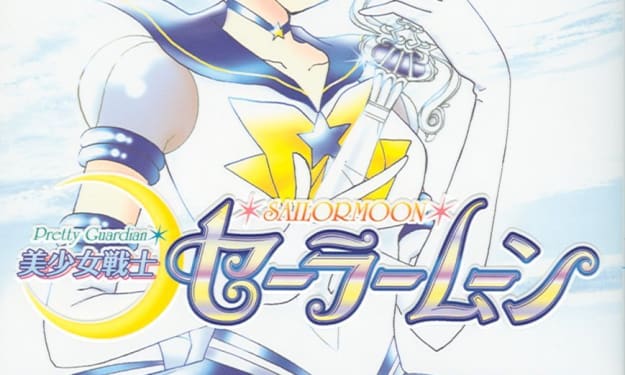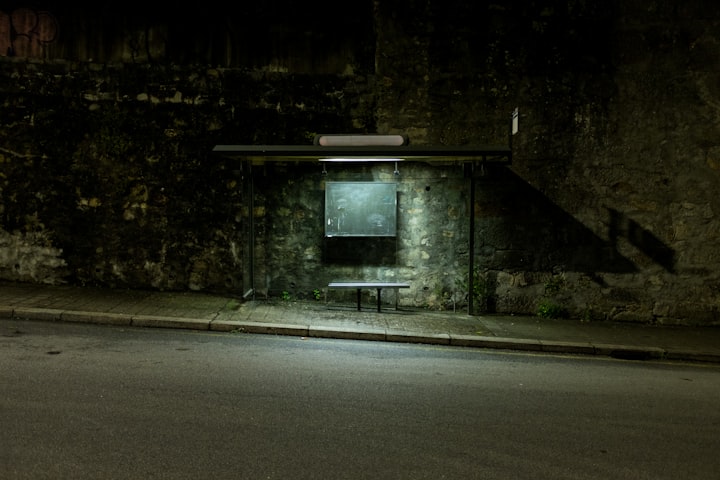Why I Don't Like the Pronoun Question
it's not what you think

I have always had a contentious relationship with gender.
When I was little, I was a boy. Every adult I encountered contradicted me, and I forgave them because I thought they were just confused by my long hair. Girls had long hair, and boy didn't. I thought that if I could just cut my hair short, they'd stop arguing with me. Adults wouldn't let me do it, though, because, they insisted, I didn't want to look like a boy. No, grown ups, that is exactly what I wanted. Obviously, or I wouldn't have requested it. I never had a very high opinion of adults when I was a child when they were clearly this thick in the head.
I was finally allowed to cut my hair short around 3rd or 4th grade. At first, after begging and arguing (for years), my mother and our family hair dresser agreed to cut it a little bit because they assumed I was crazy and would regret cutting my hair. (Remember, all girls have long hair. Or they did in the late 1980s. Which is not remotely true, but you try going back in time and arguing with these people.) So the hair dresser tried to compromise by giving me a bob. Which I hated. Because it was ugly. She used this as proof that I didn't actually want my hair cut short and wouldn't cut it any shorter. Because she was a moron. I walked around the house devastated with a blanket wrapped around my head.
When I was finally able to get my hair cut "short like a boy's," I was over the moon. I had never been happier in my life. People "mistook" me for a boy all the time, and - it - was - glorious. But they kept correcting themselves, embarrassed, which made me sad all over again. I realized that being a boy was more than a haircut.
I was constantly denied things that I wanted as a child because I was believed to be a girl. No short haircut, no action figures, no playing with the boys at recess, no baseball. I played on a T-ball team that was all boys (girls could play, they just often didn't), and when it came time to graduate from T-ball, I was made fun of mercilessly by my teammates for being forced to play the weaker sport of softball, which was obviously inferior to baseball because girls played it. It had the word "soft" in the name, so logic was on their side. (We were all around six at the time, so "logic.") Again, the adults came to a "compromise" by allowing me to play T-ball for another year since I was young for my grade. I turned them down. I didn't want to keep playing T-ball. I wanted to play baseball with my friends. Why couldn't they understand that? (Because, as we've already covered, adults are stupid.) So I gave up sports, which, up to that point, I had loved.
After falling into a deep depression that lasted...the rest of my life, I realized that I didn't have the strength to fight them anymore. The world had decided that I was a girl, and there was nothing that I could do about it. I tried shunning everything that was perceived as even remotely girly, no matter how much I might have actually liked it, in an effort to prove my point that I wasn't, in fact, a girl. It didn't work. The second I showed even the slightest interest in something "feminine," it was shoved in my face as evidence that I was a girl. I was told that girls were just as good as boys and could do anything boys could do...minus all of the things that I actually wanted to do. Talk about mixed messages.
People based what they bought me for my birthday on my genitalia and not on what I actually had interest in. That is so messed up. It was like I was forced into a club that I never wanted to be in, had no desire to stay in, and desperately wanted out of, but the members held me hostage.
Getting my period for the first time made me cry. It was my body's ultimate betrayal. I was a girl, and I just had to get used to it. But thanks to role models like Tenoh Haruka/Sailor Uranus in shows like Sailor Moon, I saw that there was, indeed, a different way of being a girl, and that was called butch. And I went all in.
In my look, anyway. Though in many of the ways I was not (and am not) butch, it's because I take after my father, who had a master's in poetry and was a master gardener. My mother was (and still is) into cars and mowed the lawn. Both loved football. My mother is far from butch, and my father was absolutely not feminine, and no one ever questioned their genders. In me, however, my interest in writing and nature and disinterest in cars and sports were perceived as proof of womanhood.
When I discovered the wonders of visual kei (a Japanese aesthetic similar to Western glam rock) that blurred the lines of gender, gender expression, and sexuality, my mind was blown, and I fell deeply in love. Mana from the band Malice Mizer was a revelation.
While I was in Japan for my semester abroad, I realized pretty quickly that I was also viewed differently than the other Westerners designated female in my dorm. I had short hair and wore khakis. In the eyes of many Japanese people that I encountered, I was a guy. Only guys had short hair and wore khakis (in 2003, and no, I don't know why), therefore I was a guy. And they were pretty happy to treat me as such, even knowing that I was designated female at birth. Finally! I thought. Someone who gets it.
Specifically, I am pretty sure I was viewed as a butch lesbian, or "boyish" or "tachi" to use Japanese terms. Once, when I was with a female friend at the grocery store, an old woman (with a glorious Kansai accent) insisted I was a man and asked what if we planned on having babies. She clearly understood that I did not have a penis, yet she insisted I was a man. And she departed with a cackle and a wave of her hand as if to say, "Kids these days." I do not believe that is how it would have gone down in a U.S. supermarket.
One of the ways I was studying Japanese at the time was to read manga, Japanese comic books. One of my favorites was Gravitation by Murakami Maki. Most of the characters are male and speak accordingly. (Unlike English, there is a marked difference in the way different groups in Japan speak.) I hadn't realized how much this affected the way I was speaking until a friend pointed out that I talked like a boy. But it was ok, she said, because I was me.
Gender expression was actually something I talked about quite a bit with certain other people in my dorm. One guy, who was outwardly pretty butch himself, marveled at how he could do anything in Japan and people wouldn't question his sexuality or deride him. He wanted to carry a bag? Cool, lots of men did. They were practical! He wanted to buy the cute bunny thing? Absolutely, it's so cute! Who can resist that? He found it freeing and explored interests he never felt able to in the U.S. where he worried about being judged.
I had similar revelations. I had always assumed gender was how it was presented to me growing up, and those were the molds I had to adhere to. Not so! If I wanted to have short hair, wear combat boots, and paint my nails, there was nothing actually stopping me. And if people accused me of being a girl, fuck 'em.
To quote Iggy Pop, "I'm not ashamed to dress 'like a woman' because I don't think it's shameful to be a woman." When I first read those words, they blew my mind. I had been ashamed to be perceived as a woman because the world had made me feel lesser. And it was frustrating! As much as people talk about girl power and how girls can do anything, society very much quietly argues otherwise, and children are terrific at picking up on subtext. (I sincerely hope things have improved since I was a sprout, but I rather doubt it.)
I had taught myself to talk and act like a woman, even fake likes and interests, because I thought that was how I was supposed to be, and it was easier to meet other people's expectations than continue arguing with them.
After I returned from Japan, I wasn't going to do that anymore. I wouldn't wince every time someone called me "she" because it wasn't the insult I had always considered it to be. This began my life of not giving a fuck about gender. I continue to really not care about gender. I know it's a big deal to some people, and I respect their reasons for why it might be to them, but it just isn't to me.
I believe that gender is performative because society makes us perform it by wearing the right clothes, shaving the right body parts, having the right hair style, showing interest in the right things. I love women who defy the stereotypes and involve themselves in "masculine" pursuits. I recently started watching the show "Good Bones" on Hulu, and a good part of my enjoyment is how these feminine women own their own construction and home remodeling business and don't shy away from the dirty work.
But that isn't me. I am not a woman who defies stereotypes. I'm not a woman. I'm a person who does a good job of pretending to be a woman most of the time. My body is curvy and not remotely androgynous, much to my regret. (Funnily enough, my body is exactly the type I fine most attractive on women, so I can't really hate it that much.) So even when I dress in "gender neutral" clothing, I still look very much like a woman. And when I dress in women's clothing, I feel like I am crossdressing. I know it doesn't look like it to the world, but I am.
Learning that nonbinary exists and is a thing that I could be was another revelation. (I feel like I am using that word too much, but it's apt, so I'm going to keep using it.) It was like learning that bisexual was a thing. I have always known I am bisexual. There has never been a point in my life that I puzzled over whether I was attracted to boys or girls. When I was in T-1 (a half step between kindergarten and first grade), I had a crush on a boy and a girl, and I would go on to have many crushes on both boys and girls, and nothing about that ever confused me. What I didn't know was what to call it.
And now there's an even more specific word for my particular brand of bisexuality called pansexuality, but I tend to just stick to bi because I'm used to it, most people are familiar with it, and because I've rambled around under the bi umbrella over the years. I feel similarly to the term nonbinary. I've spent so much of my life learning what it is to be a woman that I'm no longer just a boy. I'm somewhere in between.
So when someone asks me, "What are your pronouns?" I don't know what to tell them. It's a deer-in-headlights moment. Do I say "he" because that's what I am in my head? Do I say "she" because that's how I look and largely move through society or because I can speak pretty accurately to the female experience since everyone has treated me like a she for most of my life? Do I say "they" because people are starting to accept a singular they even though it doesn't resonate with me? Do I try something else that I am going to have to constantly educate people on when I'm just so over arguing with people and don't find it worth my limited energy?
I don't ever want someone to just assume another person's gender, but it's a very difficult question for me to answer about myself because, as evidenced by this very long blog entry, it comes with a lot of baggage. (And there is more that I didn't mention.) I've lately been saying "she or they" because it seems easiest if not exactly genuine. Drag queens, when assuming their drag personas, are called she, and I dress in drag most days because that's what flatters my body best. For years in my 20s and early 30s, I referred to myself as a girl-type, meaning a type of girl rather than just a girl.
There are times I feel decidedly feminine. There are also times I feel definitely masculine. (I naturally drift towards men in social situations.) But there are so many times that I just exist in-between without giving it a lot of thought. Which is a state I am pretty happy with and have worked for decades to achieve. I am perfectly content to have my husband call me his wife and to be a sister and an aunt. Periods still feel like a betrayal, and I can feel super dysmorphic those weeks. (If I ever became pregnant, I think my mind would implode. I'm not saying men can't have babies, because some can and they do, I just can't personally for my own sanity.)
I read a graphic memoir last year called Gender Queer: A Memoir by Maia Kobabe that really resonated with me, and e uses Spivak pronouns (specifically e/em/eir), which actually have a pretty long history in the English language. (Read all about those pronouns at this Wikipedia page.) I think they're my current favorites because they closely resemble the well-trodden pronouns most English speakers are used to. (Especially ey/em/eir which are just they/them/their with the "th" lopped off.)
Maybe one day I can answer the pronoun question without it triggering an existential crisis. If I do, I will certainly let you all know.
This article originally appeared on the blog Life from Ann Arbor on 5/20/21.
About the Creator
Crysta Coburn
Crysta K. Coburn has been writing award-winning stories her whole life. She is a journalist, fiction writer, blogger, poet, editor, podcast co-host, and one-time rock lyrics writer.






Comments
There are no comments for this story
Be the first to respond and start the conversation.